More speakers to be announced soon.
Speakers
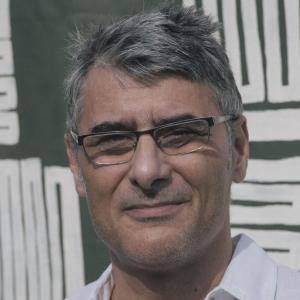
Massimo Amato
Massimo Amato teaches History of Economic Thought and History of Financial Markets at Bocconi University. He is director of the unit MINTS (Monetary Innovation, New Technologies, and Society) at Bocconi Research Centre “Baffi-Carefin”. Among his books: The End of Finance (2012), Saving Market from Capitalism (2014), For a Fistful of Bitcoins (2019). His research focuses on the (dys)functioning and possible reform of the monetary and financial system, at both global and local level.
He is concerned with the problems of the Franc CFA, collaborating at its reform with African researchers and politicians. He designed a Local Complementary Currency for the city of Nantes (2011-2013), was a member of the French Ministerial Committee of Inquiry on CC (2014-2015), and of the Italian Ministerial Committee for a CC for bankruptcy auctions (2014-2015). In 2012, he launched the proposal of a transformation of the Target2 System into a European Clearing Union, which has also become the central issue of his electoral program as a candidate for the EU elections in 2019.
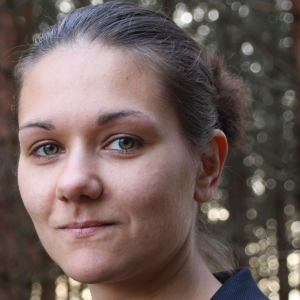
Amelia Andersdotter
Amelia Andersdotter has worked on the intersection of technology and policy over 10 years. She is currently oriented towards hardware standards, privacy and security, but has in the past been an MEP representing the Swedish Pirate Party and a popular lecturer on data protection in Sweden. Her educational background is in mathematical statistics and law, and she uses free software since 2003 (including on her phone!).
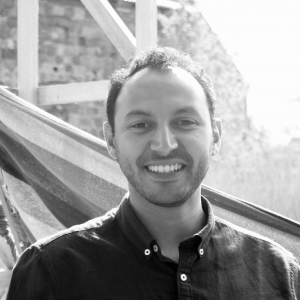
Kamel Ajji
Kamel Ajji is a Doctoral candidate at Paris 2 Panthéon Assas, Fulbright fellow and a former resident fellow at the Information Society Project at Yale Law School (2017-2018). His research focus on the governance of online platforms, public liberties, democracy, and global surveillance. In 2018, he founded 21 Mirrors, a nonprofit organization that analyzes, rates and reports to the public about the practices and policies of social media and web services regarding their consequences on civil liberties.
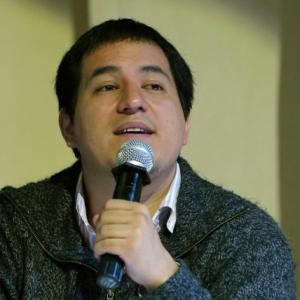
Andres Arauz
Andres Arauz is a former Minister of Knowledge of Ecuador and a former Central Bank Director during Rafael Correa's administration. While at the Central Bank, he worked with cooperatives to democratize the national payment system and designed the first Central Bank issued digital currency.
He was one of the founding directors of the Bank of the South and led the citizens' audit of the international investor-state arbitration system. Currently, he leads the Dollarization Observatory, about money and technology, government procurement, development planning macroeconomics, illicit financial flows and the hegemony of financial capital. He is currently based in Mexico City, working on his PhD in Financial Economics at UNAM.
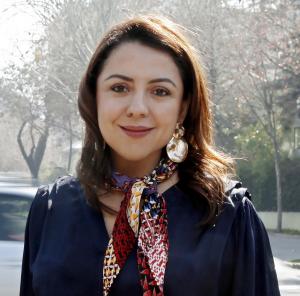
Renata Avila
Renata Avila is an international Human Rights lawyer, specialising in the next wave of technological challenges to preserve and advance our rights, and understand better the politics of data and their implications on trade, democracy and society. She is currently writing a book on digital colonialism and designing international policies and prototyping technology for a democratic future. She is a Board member for Creative Commons and co-convener of the Progressive International.
She also serves as a Board Member of the Common Action Forum and a Global Trustee of the Think Tank Digital Future Society. She is a member of the WEF’s Global Future Council on Human Rights and Technology and a Steering Committee Member of the Information Society Advisory Council (CSISAC) for the OECD.
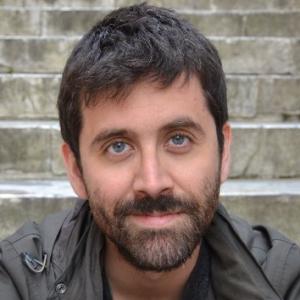
Pablo Aragón
Pablo Aragón is a research scientist at the Data Science & Big Data Analytics unit in Eurecat and an adjunct professor at Universitat Pompeu Fabra.
His research focuses on understanding social and political phenomena through the analysis of data from the Internet. He is particularly interested in characterizing online participation in civic technologies, the online network structures of grassroots movements and political parties, and the technopolitical dimension of networked democracy.
Pablo is also a board member of Decidim and contributes to the DECODE project within the BarcelonaNow pilot that focuses on empowering citizens with interactive dashboards for urban data exploration.

Mara Balestrini
Mara Balestrini is a Human Computer Interaction (HCI) researcher and a technology strategist. She is the CEO of Ideas for Change, an innovation agency advising cities, businesses and institutions. Mara’s work sits at the intersection of civic technology, data, co-creation and Action Research. She has authored over 30 publications on these subjects and coordinated projects such as Making Sense EU, Bristol Approach and #DataFutures.
Mara is also a co-founder of SalusCoop, the first Spanish cooperative for citizens’ health data.Mara earned a PhD in Computer Science from the Intel Collaborative Research Institute on Sustainable Connected Cities (ICRI-Cities) at University College London (UCL). She also holds a BA in Audiovisual Communications and a MSc in Cognitive Systems and Interactive Media. She is Senior Faculty at the IAAC and a visiting lecturer at the the Royal College of Art (RCA). Her work has been awarded at ACM CHI, ACM CSCW, Ars Electronica, among others, and featured in international media such as the BBC, The Guardian, The Financial Times and El País.
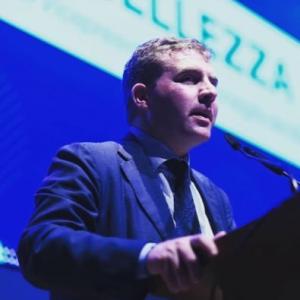
Marco Bellezza
Marco Bellezza is the Counsellor on Blockchain Strategy to the Minister for Economic Development of Italy and Legal Counsel on Communication and Digital Innovation to the Deputy Prime Minister Luigi Di Maio. As a Digital and Fintech lawyer, Mr. Bellezza’s experience ranges from providing legal assistance to Italian and foreign clients in matters relating to media law and new technologies.
Marco is the author of numerous scientific publications in national and international journals. He is founder and president of “Osservatorio Pugliese della Proprietà Intellettuale Concorrenza e Consumo digitale” (www.oppic.it). In 2011 he obtained a PhD in “Private law and new technologies” at the University of Bari, defending a thesis on the topic of the relationship between the protection of intellectual property rights and the respect of fundamental rights of users of the network in the community and national disciplinary perspective.
Katja Bego
Katja Bego is a principal researcher and data scientist in Nesta’s technology futures team. Her work focuses on studying the impact of emerging technologies such as AI on our societies, and how these new innovations can be harnessed for social good and for the benefit of everyone.
Katja is the coordinator of the European Commission-funded NGI Forward project, tasked with helping shape the strategy and policy agenda of the Next Generation Internet initiative, the EU’s ambitious new flagship programme which seeks to build a more democratic, inclusive and resilient future internet by 2025, and previously also led the EU Engineroom project, also under the NGI umbrella. She regularly comments on topics relating to the future internet in outlets such as Wired, the BBC, Financial Times and The Guardian. Before joining Nesta, Katja worked as a data scientist in the private sector and as a researcher at the MIT Media Lab. She has a degree in economics and political science from Wellesley College in the US.
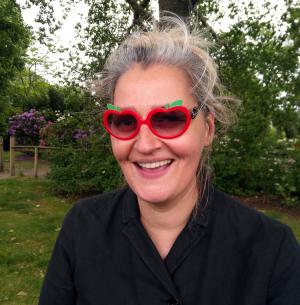
Larisa Blazic
Larisa Blazic is a London-based artist focusing on critical examination of digital technology, its impact on power relations, dominant narratives surrounding it and consequences of lack of ethical consideration and/or framework in the world of digital innovation. Over the past 20 years, Larisa has been combining hybrid interests ranging from creative use of the Internet to intersections of video art and architecture and has initiated, collaborated and participated internationally in projects ranging from net.art to FLOSS art and design.

Alessia Borge
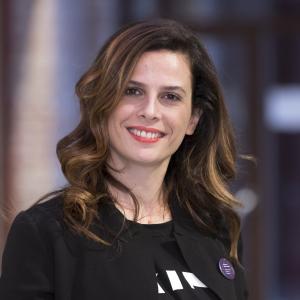
Francesca Bria
Francesca Bria is leading the DECODE project on data sovereignty in Europe. She is a Senior Adviser to the United Nation on digital cities and digital rights, and she is Assistant Professor in the Institute for Innovation and Public Purpose at UCL in London. She is an adviser for the European Commission on Future Internet and Innovation Policy, and she is the former Chief Digital Technology and Innovation for the City of Barcelona in Spain.
Francesca has a PhD in Innovation and Entrepreneurship from Imperial College, London and MSc on Digital Economy from University of London, Birbeck. As Senior Programme Lead at Nesta, the UK Innovation Agency, she has led the EU D-CENT project, the biggest European Project on digital democracy and digital currencies. She also led the DSI project on Digital Social Innovation in Europe, advising the EU on digital social innovation policies. She has been teaching in several universities in the UK and Italy and she has advised Governments, public and private organizations and movements on Technology and Innovation policy, and its socio-economic impact.
Francesca's work focuses on one of the key issues of our time: how can we give people the ownership of their data? In her recent report (co-authored with Evgeny Morozov), she explores how can societies regain control not only over digital technology, data, and infrastructure, but also over the services that are mediated by smart technologies—such as utilities, transportation, education, and health
She has been listed in the Top 50 Women in Tech by the Forbes Magazine, and in the World's top 20 most influential people in digital government by Apolitical. She has also been featured in the Italian Magazine Repubblica "D", amongst the 100 Women Changing the World.
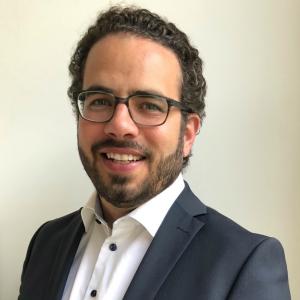
Olivier Bringer
Olivier Bringer is Head of Unit at the European Commission, in charge of the Next Generation Internet (NGI) initiative and internet governance policy. Before working on NGI, Olivier held various positions in the European Commission, dealing with policy development and implementation in the area of digital and competition law.
Prior to joining the Commission, Olivier worked as a consultant in the telecom industry. He is an engineer by training.
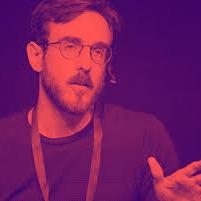
Antonio Calleja-López
Antonio is coordinator of Tecnopolitica.net at the Internet Interdisciplinary Institute of the Open University of Catalonia. He holds a Phd in Sociology, a D.E.A. in Philosophy, and a M.A. in Political Science. He carries on applied, action-research on the relations between science, technology, and society. Two of his current projects are Decidim and Decode. He has been a Fulbright fellow and is co-founder of Heuristica.barcelona and the Laboratory of Democratic Innovation.
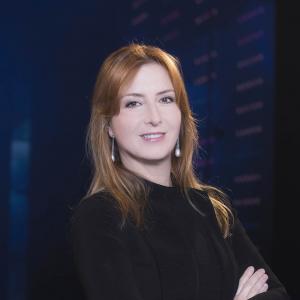
Barbara Carfagna
Barbara Carfagna is an italian journalist. Anchorwoman for the most popular news broadcast TG1, author and anchor for Rai1 program “Codice” and reporter for 60 minutes documentaries on channel 1. She realized reportages in Africa, Singapore, Israel, Iceland, Switzerland, Emirates, Taiwan, Corea, Japan, Europe and Silicon Valley visiting the most advanced universities. Graduated in literature and philosophy, she focuses her reportages on how internet is reshaping human nature and structures in the digital era (politics, economy, society).
As influencer in cyber, she also writes for italian newspapers Panorama, Il Foglio, Italiana, Formiche. She is in the the main Italian think tanks, as follower and moderator and gives courses in Italian universities. In a previous life she was a violinist. As author for Mondadori she published “Rete di sicurezza” with the introduction of chief of Italian intelligence Alessandro Pansa and “Digital democracy – the second step”.
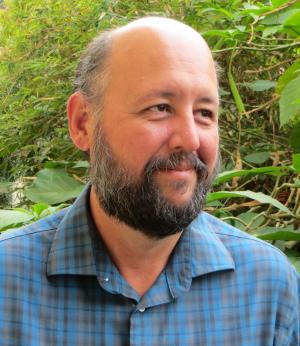
Ben Cerveny
Ben Cerveny has served for over 25 years as a founder, strategist, and designer in the context of operating systems, media applications, web services, products, the built environment, and digital games. Currently, he is the President of the Foundation for Public Code, where he is working to help cities and other public organizations develop and share software and policy that is open, legible, and useful at the civic scale. Before this, he was a Design Fellow at Samsung, leading a project on room-scale programmable environments. Previously, he designed the massively multiplayer game that became Flickr [and also named it], founded the Experience Design Lab at Frogdesign, and was CEO of Bloom Studios, whose data visualization iPad app Planetary was acquired by the Smithsonian Institution.
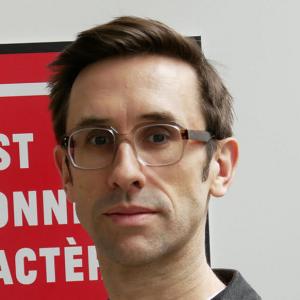
Régis Chatellier
Régis Chatellier is the Innovation & Foresight Project Manager at Department of Technologies and Innovation - CNIL (French Data Protection Authority).
He is a member of LINC (Laboratoire d'Innovation Numérique de la CNIL), the innovation and foresight laboratory of the CNIL, a triple project based on an online media (https://linc.cnil.fr / @LINCnil), a physical space, and a research and experimentation platform. In 2019, LINC publish its 6th Innovation and Foresight Report (Shaping Choices in the Digital World, From dark patterns to data protection: the influence of UX/UI design on user empowerment) which explores challenges related to the design of digital services.
In 2017, LINC published a report on smart city and the need to restore the balance between public and private sphere, while respecting data protection.

Sofia Celi
Sofía Celi is a cryptographic researcher who currently leads the version 4 of the Off-the-Record messaging protocol. She also participates in a variety of projects and ideas. She studied classical music, literature and philosophy but manly likes now the mathematical world of cryptography.
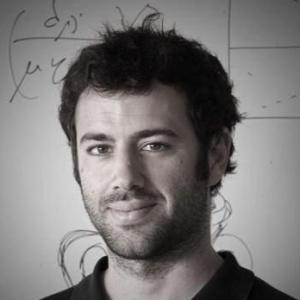
Pol Colomer
Pol Colomer is a PhD in Physics focused on Network science. He studied the robustness of infrastructural networks, and how the topology of social networks affects their capacity to spread diseases or rumours. Experience in C for running simulations, Python for analysing and plotting the data and SQL and mongo databases.
Pol is Co-founder of Dribia, a consultancy working in fun projects solving business problems through data analysis. Besides, he is a data scientist at the University of Barcelona modelling player retention and progression in casual mobile games for King Digital Entertainment plc. Interested in adding value to the huge amount of data that our society is generating to change and optimize our everyday lives.
.jpg%3Fitok=Dt5D9X7W&sc=d714508c6581a0168666360358d57b54)
Luca De Biase
Luca De Biase is Editor-in-Chief of Nòva24 (which he founded in 2005 and led until June 2011; and which he is leading again since July 2013), innovation Editor of Il Sole 24 Ore. He is Knowledge Management Visiting Professor at Pisa University; member of the Scientific Committee at the Master in Sciences Communications at Sissa Trieste; Co-founder of the association ItaliaStartup. Luca has authored several books and scientific articles including: Media civici. Informazione di mutuo soccorso (2013), Homo pluralis (2015), Come saremo, with Telmo Pievani (2016) and Il lavoro del futuro (2018).

Geoffroy de Lagasnerie
Geoffroy de Lagasnerie is a philosopher and sociologist, and professor at the École Nationale Supérieure d’Arts de Paris-Cergy. He is the author of several books, articles pertaining to social and political philosophy and critical theory. He published The Art of Revolt. Snowden, Assange, Manning (Stanford University Press, 2017) and Judge and Punish (Stanford University Press, 2018°).

Alex D'Elia
Alex D'Elia specializes in mesh networks and smart grids. A member of CETRI-TIRES, Alex is part of the IoT council and is actively involved in R&D on network, energy distributed and decentralized infrastructure technologies.
Today he is CIO and Co-Founder at Mangrovia Blockchain Solutions.
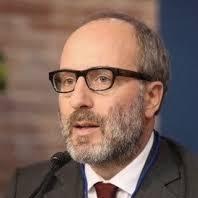
Juan Carlos De Martin
Juan Carlos De Martin is full professor of the Polytechnic of Turin (Italy) where he teaches computer science and digital culture and where, since March 2018, he serves as Rector's Delegate for Culture and Communication. Since 2011 he has also been associated with the Berkman Klein Center for Internet & Society at Harvard University, first as Faculty Fellow and now as Faculty Associate. Between 2007 and 2011 Juan Carlos De Martin was the coordinator of COMMUNIA, the European thematic network on the digital public domain, with 50 members from Europe and overseas.
In 2012 he edited, together with Melanie Dulong de Rosnay, the book The Digital Public Domain: Foundations for an Open Culture (OpenBookPublishers, UK), while in 2017 he published a book on the future of university in the Internet age, Università Futura - Tra Democrazia e Bit (Codice Edizioni, 2017). Between 2014 and 2018 De Martin served as an expert member of the Study Commission on Internet Rights established by the President of Italy's Chamber of Deputies. Juan Carlos De Martin also serves as member of the Scientific Board of the Institute of the Italian Encyclopedia Treccani. He is an op-ed contributor to the national newspaper "la Repubblica" and he often acts as a commentator in Italian media.
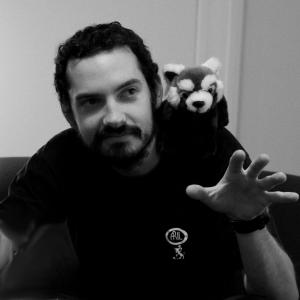
Simon Descarpentries
Born 1984 like the FSF, I like softwares with ethics in addition to open sources. With an engineering degree from Polytech'Tours, Informatics Research Master and an MBA, I am today main shareholder of the company Acoeuro.com and treasurer of le Fonds de Défense de la Neutralité du Net (Fund for Defense of Net Neutrality, FDN2.org). I obtained my first professional experiences as a consultant during my studies before taking the head of a web development team in a growing company. I then got back closer to free softwares joining one of the key associations of the movement in France (Framasoft.net), and then a key player of online participatory debate in France.
I'm a member of April.org (FSF France) since 2002, a fellow of La Quadrature du Net since its creation in 2009 (official member since it's possible) and treasurer of FDN2 since 2011.
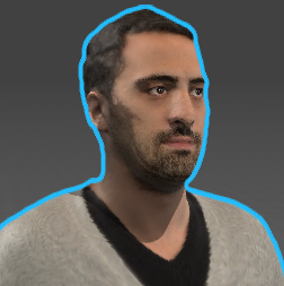
Andrea D'Intino
Andrea D'Intino is a technology enthusiast with experience in software and video-game development, has held sales and marketing management positions with industrial 3D Scanners (at 3Shape) and 3D Printers (at 3D Systems) and has solid track with enterpreneurship and hypergrowth. Andrea is currently member of ISO TC/307 (blockchain standardizartion) and helping Dyne.org with management and expansion.
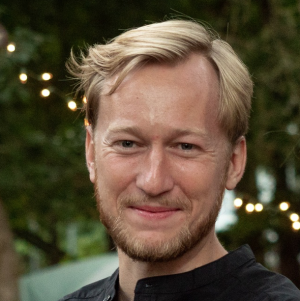
Kevin Donovan
Kevin Donovan is a Lecturer in the Centre of African Studies, University of Edinburgh. He studies the political economy of infrastructure and money in East Africa, including the digital data and debt.
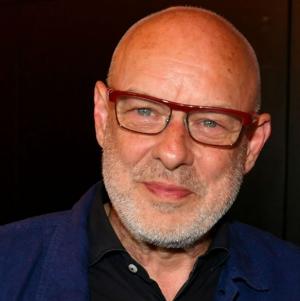
Brian Eno
Brian Eno is a musician, producer, composer, thinker, multimedia artist, technologist and essayist. Eno changed the course of the history of sound over the last four decades with his visionary talent and amazing creative abilities.
The list of artists Eno has collaborated with throughout his long career is simply mind-blowing: from Robert Fripp or Laurie Anderson to U2, Coldplay and even legends such as David Bowie or Talking Heads. There are very few music genres in which his imprint is not reflected, but he particularly contributed to shape a new genre that is still alive and constantly morphing: ambient music.
Throughout his inspiring career, Eno bolstered his ideas in multiple directions in art. In particular, he has worked in the field of sound and audiovisual installations, anticipating trends such as vertical video and generative sound and image. His huge contribution to the reflection and cultural analysis of our time –in terms of science, technology, art and culture– in conferences, essays, articles and interviews, eventually converge in a question he has been asking himself for years: ‘What difference does it make to the world?’.
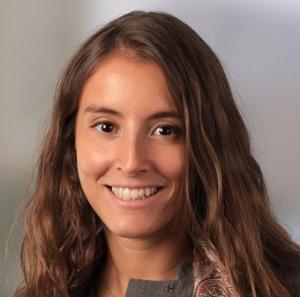
Yasmine Fage
Yasmine Fage is the co-founder and Chief Operating Officer of Goggo Network, the new autonomous vehicle mobility start-up created with Martin Varsavsky about a year ago. She is passionate about bringing innovation and systemic changes to societies and has gathered over 10 years of experience working with corporations and governments across the world in highly regulated industries such as Healthcare and Transportation.
Previously, Yasmine was Associate Partner at McKinsey & Company in the New York office. She joined McKinsey & Company in 2009 and was a leader in the Public Sector and Innovation Practice. Yasmine obtained a Master's degree from the University of Sciences Po Paris and a Master's degree in Business Administration from the Columbia Business School.
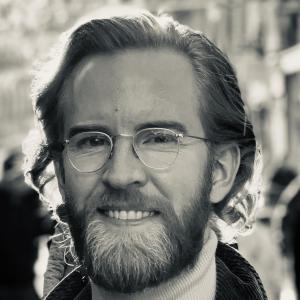
Joseph Farrell
Joseph Farrell is a British journalist and editor who has worked for the Centre for Investigative Journalism (where he currently serves as a board member), the Bureau of Investigative Journalism and WikiLeaks where he has been since 2010. He has been a section editor for many important WikiLeaks' publications including the Iraq and Afghan War Logs and Cablegate to name but a few.
He was a member of the Civil Society Coalition at the United Nations’ World Intellectual Property Organisation’s diplomatic conference on a treaty for copyright exceptions for persons with disabilities in Marrakesh, Morocco. Farrell regularly appears on TV networks analysing the week's news headlines.
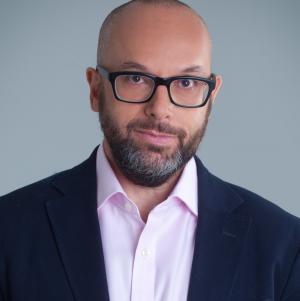
Tom Fuerstner
Tom Fuerstner is a research scientist and university professor with over 30 years of experience in formal logic, social economy theory and digital art.
Tom is the founder and CTO of Riddle & Code, a company focused on developing dedicated hardware for the physical internet and public ledger systems.

Andrea Gadotti
I work on re-identification attacks of anonymous data and on the design of systems for privacy-preserving data analysis. I advocate for privacy and digital rights. I love Free Software.

Rohan Grey
Rohan Grey is a doctoral candidate at Cornell Law School, where his research focuses on the legal design and regulation of digital fiat currency. He is the founder and president of the Modern Money Network, research director of the Digital Fiat Currency Institute, and a network manager of the FreedomBox Foundation.
He also consults with the International Telecommunications Union's Focus Group on Digital Currency, and previously co-authored a white paper for eCurrency Mint, Ltd. on 'The Macroeconomic Implications of Digital Fiat Currency'.
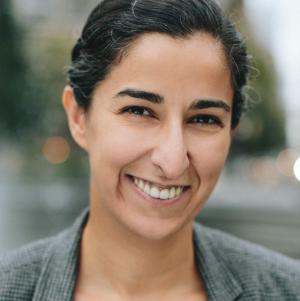
Seda F. Gürses
Seda is currently an Assistant Professor in the Department of Multi-Actor Systems at TU Delft at the Faculty of Technology Policy and Management, and an affiliate at the COSIC Group at the Department of Electrical Engineering (ESAT), KU Leuven. Previously she was an FWO post-doctoral fellow at COSIC/ESAT, a research associate at the Center for Information Technology and Policy at Princeton University, and a fellow at the Media, Culture and Communications Department at NYU Steinhardt as well as the Information Law Institute at NYU Law School.
Her work focuses on privacy enhancing and protective optimization technologies (PETs and POTs), privacy engineering, as well as questions around software infrastructures, social justice and political economy as they intersect with computer science.

Holly Herndon
Holly Herndon has successfully mined the edges of electronic and Avant Garde pop since her arrival in 2012, and emerged with a dynamic and disruptive canon of her own. Born in the mountains of East Tennessee, she went from singing in church to enrolling in a German exchange program. Adopting Berlin as a second home, she cut her teeth performing in the city’s clubs prior to attending Mills College. She utilized the laptop as “the most intimate instrument,” cultivating live voice processing systems and developing custom vocal patches to construct experimental pieces performed in realtime. She put those pieces into play on the likes of “Breathe” and “Dilato” from her fulllength debut, Movement. Researching platform politics for her phD at Stanford, she assembled her 2015 sophomore offering Platform. Telematic performance at Stanford fueled “DAO” and integrated custom sampling of daily activities online into the songcraft of “Chorus” and “Home.” As it sparked commentary on “platform politics”, Platform closed out 2015 by gracing year-end lists from Pitchfork, The Guardian, NME, and The Wire. Primarily composed alongside collaborators online, it was “the first commercially released album to include a track intended to trigger autonomous sensory meridian response (ASMR).” Following the release, Radiohead handpicked her to open up its European tour. In 2019, she breaks ground again on her third full-length, PROTO. She fronts and conducts an electronic pop choir comprised of both human and A.I. voices over a musical palette that encompasses everything from synths to Sacred Harp stylings. CNN says Holly is “shaping the future of A.I.” as she operates at the nexus of technological evolution and musical catharsis. The single “Godmother” [feat. Jlin and Spawn] introduces this next phase as she continues to pioneer.

Robert Hockett
Robert Hockett joined the Cornell Law Faculty in 2004. His principal teaching, research, and writing interests lie in the fields of organizational, financial, and monetary law and economics in both their positive and normative, as well as their national and transnational, dimensions. His guiding concern in these fields is with the legal and institutional prerequisites to a just, prosperous, and sustainable economic order.
A Fellow of the Century Foundation and regular commissioned author for the New America Foundation, Hockett also does regular consulting work for the Federal Reserve Bank of New York, the International Monetary Fund, Americans for Financial Reform, the 'Occupy' Cooperative, and a number of federal and state legislators and local governments.
Prior to doing his doctoral work and entering academe, he worked for the International Monetary Fund and clerked for the Honorable Deanell Reece Tacha, Chief Judge of the U.S. Court of Appeals for the Tenth Circuit.
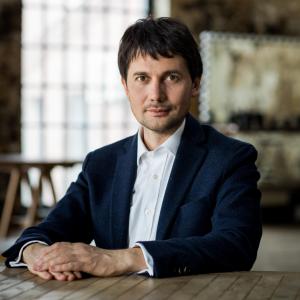
Alexey Ivanov
Alexey Ivanov leads the HSE-Skolkovo Institute for Law and Development (ILD), the research division of the leading Russian University Higher School of Economics, in its academic and strategic pursuits. ILD conducts interdisciplinary research in order to identify optimal policy strategies for the transformation of Russia’s legal framework and the global institutions to which it connects. Mr Ivanov has guided the HSE-Skolkovo joint venture since its inception. As an Associate Professor at the HSE University Law School, Alexey is teaching the course Antitrust in the New Economy. Alexey serves as a Head of the BRICS Competition Law and Policy Centre (http://www.bricscompetition.org/), whose aim is to provide the meeting point for BRICS competition law research and to promote a distinct BRICS competition law agenda for the global economy. Mr Ivanov is an Academic Supervisor of Centre for Technology Transfer of the Higher School of Economics that ensures the implementation of projects aimed at developing competition in the Russian agrotechnology sector.
Lorena Jaume-Palasí
Lorena Jaume-Palasí is the founder of The Ethical Tech Society, a fact- and theory based non-profit organization focused on automation and digitization processes with regards to their social relevance.
Lorena’s work centers on ethics and legal philosophy. 2017 she was appointed by the Spanish government to the High Level Expert Council on Artificial Intelligence and Big Data and is a former member of the EU High Level Expert Group on Artificial Intelligence. She is one of the 100 experts of the Cotec Foundation for her work on ethics in AI and digitization. 2018 she was awarded the Theodor Heuss Medal "for her contribution to a differentiated view of algorithms and their mechanisms of action" with the Algorithm Watch initiative.
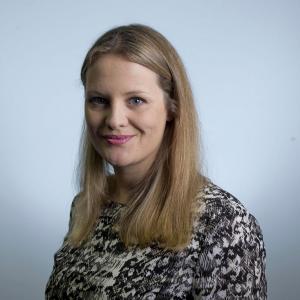
Izabella Kaminska
Izabella Kaminska is the editor of FT Alphaville. She's been blogging and writing opinion pieces for the Financial Times since she joined the newspaper in October 2008, which was, perhaps, the best time in the world to become a financial blogger. (Added bonus: there was a free breakfast trolly.)
Before that she worked as a producer at CNBC, a natural gas reporter at Platts and an associate editor of BP’s internal magazine. She has also worked as a reporter on English language business papers in Poland and Azerbaijan and was a Reuters graduate trainee in 2004. She has focused much of her writing on finance, tech, commodities and media all come together.

Julia Kloiber
Julia Kloiber is the Founder of Superrr Lab – a research and advocacy organization and a partner at Ashoka Germany. She develops strategies and concepts for the digital world. Julia has put her expertise in technology, design and media studies to use for the Mozilla Foundation, the Open Knowledge Foundation and The Engine Room. She has been running multiple projects that foster the reuse of open data and promote transparency – such as Germany’s first Civic Tech Incubator ‘Stadt Land Code’. She enjoys speaking at international conferences, such as TED, the Personal Democracy Forum or the World Design Conference. As digital strategy advisor she is working with government institutions and businesses alike.
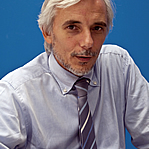
Fabrizio Leoni
Born in Milan in 1966, married, two children. After a scientific training at the Faculty of Physics in Milan, he began his experience in the world of IT consulting as a freelancer. In the following years he was a founding member of two technology consulting firms in the Groupware and Enterprise Web Development fields. After an experience in DedaGroup as Solution Manager, he started as CTO a new company, Klever, building a strong expertise in regulated ECM solutions. After Klever acquisition by InfoCert, he become Enterprise Solutions Marketing Manager. Currently, he is Head of Product Innovation at InfoCert (Tinexta group), the largest European certification authority.

Anna Masera
Anna Masera is public editor of the Italian daily La Stampa, where she has worked since 1999 as web editor and social media editor, with a two-year leave of absence as spokesperson at the Italian House of Representatives in Rome in 2014-2015. She has also been Director of the Master Degree in Journalism (a two-year program) at the University of Turin since July 2016.
She is co-author of “Internet, i nostri diritti” (“Internet, our rights”), published by Laterza in 2016. She graduated from Yale University with a BA in History in 1983 and from Columbia University with an MA in Journalism in 1984.
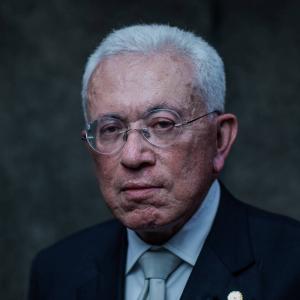
Roberto Mangabeira Unger
Roberto Mangabeira Unger is is one of the leading philosophers and political thinkers in the world today.
He is a Brazilian philosopher and politician who is Professor at Harvard Law School. He was the Brazilian Minister of Strategic Affairs under Presidents Lula and Dilma Roussef. He has developed his views and positions across many fields including legal theory, philosophy and religion, social and political theory, progressive alternatives, and economics.
In The Knowledge Economy he applies to the analysis of our economic present and future a way of thinking prefigured in his earlier book, Free Trade Reimagined: The World Division of Labor and the Method of Economics, as well as in his central work in social theory, False Necessity.

Paul Mason
Paul Mason is a journalist, writer and broadcaster. Formerly economics editor with both BBC Newsnight and Channel 4 News he now writes regularly for the New Statesman, Guardian, Freitag and Le Monde Diplomatique. His latest book is Clear Bright Future: A radical defence of the human being.
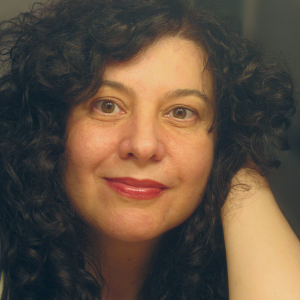
Stefania Maurizi
Stefania Maurizi works for the Italian daily la Repubblica as an investigative journalist, after ten years working for the Italian newsmagazine l'Espresso.
She has worked on all WikiLeaks releases of secret documents, and partnered with Glenn Greenwald to reveal the Snowden files about Italy. She has also interviewed A.Q. Khan, the father of the Pakistani atomic bomb, revealed the condolence payment agreement between the US government and the family of the Italian aid worker Giovanni Lo Porto killed in a US drone strike, and investigated the harsh working conditions of Pakistani workers in a major Italian garment factory in Karachi. She has started a multijurisdictional FOIA litigation effort to defend the right of the press to access the full set of documents on the Julian Assange and WikiLeaks case. She authored two books: Dossier WikiLeaks. Segreti Italiani and Una Bomba, Dieci Storie,the latter translated into Japanese.
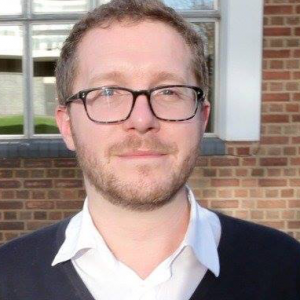
James Meadway
James Meadway is former chief economic advisor to Labour Party Shadow Chancellor John McDonnell and oversaw the development of Labour's anti-neoliberal economic agenda under Jeremy Corbyn, including the promotion of decentralised and collectively-owned approaches to the digital economy. James was previously chief economist at the New Economics Foundation, an independent think tank based in London, and has taught at City, SOAS, Sussex and Cambridge Universities in the UK. He is currently writing a book on economics for the many, to be published early next year.
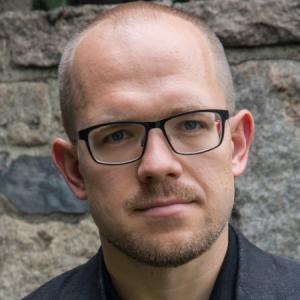
Evgeny Morozov
Evgeny Morozov is the author of The Net Delusion and To Save Everything, Click Here. Morozov’s monthly column on technology and politics appears in The Observer (UK), Süddeutsche Zeitung (Germany), Internazionale (Italy), Le monde diplomatique (France) and several other newspapers. His writings have appeared in The New Yorker, The New York Times, The Wall Street Journal, Financial Times, and other publications.
Previously a senior editor at The New Republic, he has been a fellow at Georgetown University, Stanford University, Open Society Foundations, NewAmerica Foundation, and the American Academy in Berlin.

Geoff Mulgan
Geoff Mulgan has been Chief Executive of Nesta since 2011. Nesta is the UK's innovation foundation and runs a wide range of activities in investment, practical innovation and research.
Between 1997 and 2004 Geoff had various roles in the UK government including director of the Government's Strategy Unit and head of policy in the Prime Minister's office. From 2004 to 2011 Geoff was the first Chief Executive of The Young Foundation. He was the first director of the think-tank Demos; Chief Adviser to Gordon Brown MP and reporter on BBC TV and radio. He has been a visiting professor at LSE, UCL and Melbourne University and is currently a senior visiting scholar at Harvard University. Geoff co-chaIrs a World Economic Forum group looking at innovation and entrepreneurship in the fourth industrial revolution.
He has advised many governments around the world and is currently chair of an international advisory committee for the Mayor of Seoul and a member of advisory committees for the Prime Minister’s office in the UAE, the Scottish Government and SITRA, the Finnish Innovation agency.

Puria Nafisi Azizi
Puria Nafisi Azizi's interests lie between design and technology, paired with work ethics and for social impact. A Free Software Hacktivist (netstudent, hiptia, solos ...), he is currently working with one of the largest and most politically exposed free software foundations in Europe (Dyne.org), for the European DECODE project where he is a technology expert focusing on distributed ledgers and Interaction Design for cryptography. In the past to years Puria has been responsible for the maintenance of the KSWEB, a tool aimed at generating, spreading and managing structured knowledge.
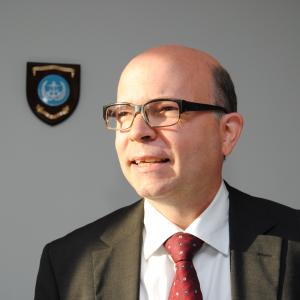
Paul F. Nemitz
Paul Nemitz is the Principal Advisor in the Directorate General for Justice and Consumers. He was appointed by the European Commission on 12. April 2017, following a 6 year appointment as Director for Fundamental Rights and Citizen’s Rights in the same Directorate General.
As Director, Nemitz led the reform of Data Protection legislation in the EU, the negotiations of the EU – US Privacy Shield and the negotiations with major US Internet Companies of the EU Code of Conduct against incitement to violence and hate speech on the Internet. Nemitz has represented the European Commission in numerous cases before the European Court of Justice and has published widely on EU law.

Caroline Nevejan
Caroline Nevejan is Chief Scientic Officer of Amsterdam. She is a researcher and designer who has been involved with the emerging network society and digital culture since the 1980's.
Nevejan is a regular presenter at national and international fora. She is an advisor to national and European policy makers.
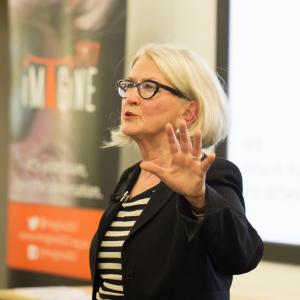
Ann Pettifor
Ann Pettifor is best known for her prediction of the Great Financial Crisis in The Coming First World Debt Crisis (Palgrave 2006). In 2008 co-authored The Green New Deal published by NEF. In 2017 Verso published The Production of Money on the nature of money, debt and the finance sector. She is the author of The Case for The Green New Deal (forthcoming, 2019).
In 2018 the Heinrich Boll Foundation awarded Pettifor the Hannah Ahrendt Prize. She is a Council member of the Progressive Economy Forum and director of PRIME economics – a network of Keynesian macroeconomists. In 2015 the Rt.Hon Jeremy Corbyn MP appointed her to the Labour Party’s Economic Advisory Committee. She has an honorary doctorate from the University of Newcastle for her work leading an international movement for the cancellation of $150bn of debt owed by 35 low income countries, Jubilee 2000.
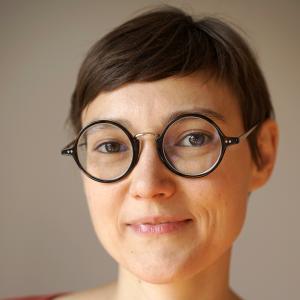
Valentina Pavel
Valentina Pavel is a legal adviser and a digital rights advocate. As 2018–2019 Mozilla Fellow at Privacy International, she investigated different data governance models and looked at the implications of concentrated corporate power on privacy and data protection. Her main fellowship output is Our Data Future, a set of future scenarios describing how the world might look like depending on the different data models we might choose. For over 6 years, Valentina has been one of the core members of ApTI Romania (the Association for Technology and Internet), a digital rights NGO part of the EDRi (European Digital Rights) network.
Marco Pironti
Marco Pironti is the Deputy Mayor of Innovation, Smart City and ICT Systems of the City of Torino. He is carrying out the strategy of innovation and digitization of the city of Torino. His vision for the city is to turn into a laboratory for testing frontier innovations open to the world, but especially an administration vision that is always looking to citizen participation. A cutting-edge city vision is based on Torino City Lab, an initiative-platform aimed at creating simplified conditions for companies interested in conducting testing in real conditions of innovative solutions for urban living. Promoted by the City of Turin, it involves a vast local partnership of subjects from public and private sectors interested in supporting and growing the local innovation ecosystem and frontier innovation. He is a Professor of Innovation Management and Entrepreneurship at the University of Torino – Computer Science Department, Director of ICxT Interdepartmental Innovation Center and member of Scientific Committee of PhD program in Innovation for Circular Economy. He is an author of more than 90 articles and other publications. His main research interests are relating to strategy, innovation management and business modeling & planning.
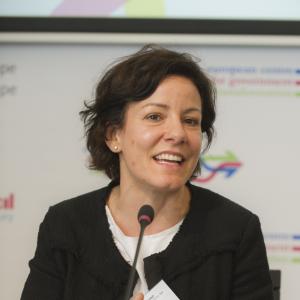
Paola Pisano
Paola Pisano has been recently nominated the Minister of technological innovation and digitization of the Italian Government. She is the former Councillor for innovation and digitization of the City of Torino. She holds a PhD in Business Administration and she is Professor of Innovation Management at the University of Torino.
She founded and directs the ICxT's innovation laboratory at the University of Turin and participates to the startup of ESCP Europe Business School in Torino. She has been visiting lecturer at GCU (Glasgow Caledonian University) London and at the University of Westminster, she published more than 80 papers on innovation and innovative business models.
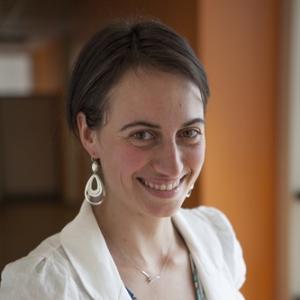
Valeria Portale
Valeria Portale has started working for the Digital Innovation Observatories of the School of Management of Politecnico di Milano after a graduation in Management Engineering at the Politecnico di Milano.
She is currently the director of the Blockchain & Distributed Ledger and Innovative Payments Observatories and she collaborates as a Senior Advisor with the Digital Innovation in Retail and the Fintech & Insurtech Observatories. For more than 10 years she has been collaborating in the dissemination of knowledge about the digital payment sector and the blockchain and distributed ledger technologies by studying both the Italian and the international market. She carries out teaching and support activities at the Department of Management Engineering and MIP.
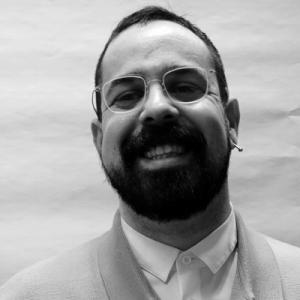
Alexandre Pólvora
Alexandre joined the EU Policy Lab in 2016. His current work is centred on participatory and distributed science and technology models, and collaborative and transdisciplinary frameworks for policy advice. His main research and publication fields range from everyday life studies and qualitative social analysis to action research and co-creation in technological contexts. He was previously Researcher at CETCOPRA of Université Paris 1 / Panthéon-Sorbonne; Associate Researcher at Vitruvius Fab Lab, and at the Centre for Research and Studies in Sociology as MC of COST Action ‘Investigating Cultural Sustainability’, both at ISCTE-IUL / University Institute of Lisbon; Visiting Researcher at the Department of STS of Rensselaer Polytechnic Institute; and Associate Researcher and Consultant in participatory and community-based CSO/NGO projects at national and international levels. He holds a BA (Hons) in Sociology from ISCTE-IUL and a DEA/Master in Philosophy from Université Paris 1.
.jpg%3Fitok=TMKY-1Tm&sc=5d99129166e9d6e6ae0e11e4550f936f)
Alex Puig
Alex Puig is a software R+D engineer and tech entrepreneur.
Due to his interest in cryptocurrencies, he founded Digital Currency Summit, a conference aiming to debate about the economic impact of blockchain and decentralized technologies in our society.
His areas of interest are Blockchain, DAG, Self Sovereign IDs, Zero Knowledge Proof and Tokenomics.
He also founded Alastria Blockchain Ecosystem, the first National Wide semi-public blockchain Platform, and now is leading the Technical Team at Caelum Labs, a Blockchain consultancy and development firm based in Barcelona.

Edoardo Reviglio
Edoardo Reviglio is Head of International and European Projects at Cassa depositi e prestiti (CDP), Rome. He is professor of economics at LUISS Guido Carli in Rome and President and faculty member of International University College of Turin.
He has been a member of the Council of Economic Advisers of the Italian Ministry of Economy and Finance. He is one of the co-authors and chairman of the WG on finance of the Prodi report on investing in social infrastructure. He has a considerable and recognised experience in research and external relations representing CDP in international institutions (UN, G20, G7, OECD, EU) and worked extensively with them. He is in the Board and Scientific Committee of several Think Tanks at national and international level.
Edoardo received his BA, Summa Cum Laude, from Yale College; was Senior Fellow at Department of Mathematics of Yale University; and Research Associate at the Department of Mathematics of Imperial College, University of London. He is the author of many scientific and policy publications. His field of interest include: public finance, banking and finance, law and economics, and economic history.

Jennifer Robinson
Jennifer Robinson has been instructed in human rights related judicial review cases, has advised individual and state clients in international law, appeared in the International Court of Justice and has given expert evidence at the UN and in Parliament.
Jen has a particular focus on free speech and civil liberties, advising media organisations, journalists and whistle-blowers on all aspects of media law, including defamation, privacy, contempt, freedom of information, national security and reporting restrictions. Her work developing the Bertha Justice Initiative, a global program to support strategic public interest litigation and educate the next generation of human rights lawyers, allowed her to develop a unique global network and comparative perspective to her practice. Jen serves as a trustee of Article 19 and the Bureau for Investigative Journalism, as well as on the advisory board of the European Center for Constitutional and Human Rights.
She is a founding board member of the Grata Fund, Australia’s first independent public interest litigation fund, which has supported key strategic human rights cases.
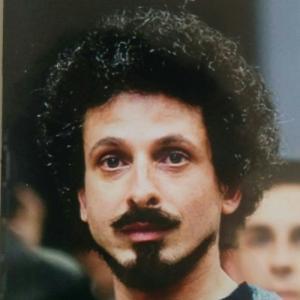
Denis "Jaromil" Roio
Denis Roio, also known as Jaromil, is an activist, artist and software developer, founder of Dyne.org and creator of various free and open source software and operating systems. He is an early contributor to Bitcoin core, technical coordinator of DECODE and author of the crypto VM Zenroom.org

Christopher Roth
Christopher Roth is an artist, film director and TV producer. In 2018, Roth co-launched space–time.tv, a web-platform with three stations: realty-v, s+ and 42. In the same year Architecting after Politics, a 90-minute film, premiered. After The Property Drama (2017) and Legislating Architecture (2016) it is the third film with Brandlhuber+ about architecture and politics. The Seasons in Quincy, Four portraits on John Berger was in the official selection of the Berlinale 2016, and 80*81 What Happened? (with Georg Diez) was published at Merve in the same year. The feature film Baader won the Alfred Bauer Prize in Berlin 2002. The feature film Jean and Jeanne. And Otto went into pre-production and will be shot in 2020. Christopher Roth teaches in the architecture department at ETH Zurich and is one of the curators of the German Pavilion in the Venice Biennale in 2020. christopherroth.org
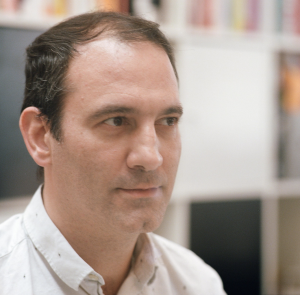
Javier Ruiz
Javier Ruiz leads on policy at the UK based advocacy organisation Open Rights Group. His work covers a broad range of digital rights in areas such as transparency, privacy, state surveillance and intellectual property. He is also part of the VIRT-EU consortium, where he is helping create a privacy and ethical impact assessment toolkit for IoT designers and developers.
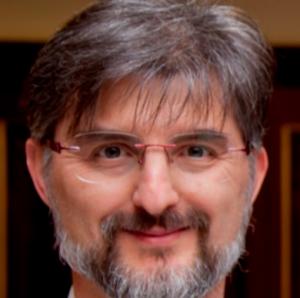
Roberto Sanlorenzo
Roberto, trained as molecular biologist, specialized in stress physiology, is by call a social innovator. He founded the Italian branch of two international NGO’s and worked with these two organizations for 20 years in the field of health, wellbeing, human values and human rights. He coordinated the implementation of clinic interventions and published few ground-breaking scientific papers on the use of yogic breathing and meditation techniques as complementary medicine protocols for depression and anxiety, developing extensive experience of a systemic approach to prevention and cure of human diseases. His personal experience of the crumbling of the welfare state model, and the growing awareness of the deep connection between the current economic paradigm and the social and environmental challenges humanity is facing at global and local level, inspired him to create Merits, a platform that facilitate the creation of new, participative welfare models combining social and economic impact.
p { margin-bottom: 0.25cm; direction: ltr; line-height: 115%; text-align: left; }
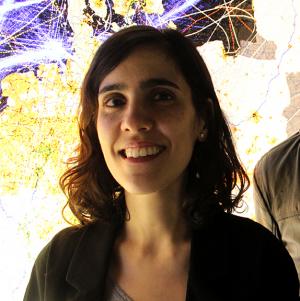
Mar Santamaria Varas
Mar Santamaria Varas is a co-founder of 300.000 Km/s, an urban innovation office based in Barcelona that explores the potential of data and new computation paradigms to extract relevant information with the aim to improve urban planning and decision-making.
300.000 Km/s' interdisciplinary team works across the fields of urban analysis, cartography, strategic planning, development of digital tools, and digital humanities. In the last five years, they have collaborated with public entities, international firms, cultural and scientific institutions and non-profit organisations. 3000.000 Km/s projects have been recognized with various awards and mentions – among others BBVA-Civio Data Visualisation Award (2014), Open Data Institute Awards (2016), CityVis Prize (2017), Biennial Española de Urbanismo y Arquitectura (2018), LLuís Carulla Award (2018) and S+T+ARTS Prize (2019)- and have been exhibited at Ars Electronica, the Biennale of Venice, the Chicago Arts Institute, the Center of Contemporary Culture of Barcelona and Madrid CentroCentro, among others.
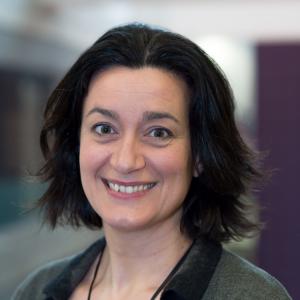
Maria Savona
Maria Savona is Professor of Innovation and Evolutionary Economics at SPRU, Science Policy Research Unit at the University of Sussex, UK.
She was previously at the University of Cambridge, UK, Universities of Strasbourg and Lille 1, France. Her research focuses on the economics of innovation; the effects of technical change on employment and wage inequality; the structural change of the sectoral composition of economies, particularly the emergence of global value chains in services; economics and policy of innovation in services; barriers to innovation and innovation failures. More recently, she is interested in policies to redistribute data-value.
She has led and co-led grants funded by the ESRC, Joseph Rowntree Foundation, EC H2020, IDRC. She has advised the IADB; ECLAC; UN ESCAP; OECD; NESTA; BEIS, DETI. She is an Editor for Research Policy; AE for the Journal of Evolutionary Economics. She is an Academic Member of the ESRC Peer Review College and in evaluation panels for the EC, National Research Councils of Canada, Finland, Luxembourg, Italy, Norway, UK, US. She is a former member of the High Level Expert Group on the Impact of Digital Transformation on EU Labour Markets for the European Commission.
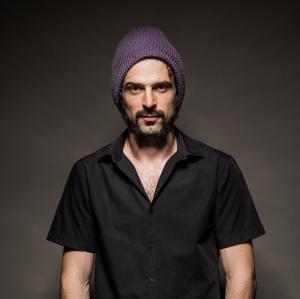
Brett Scott
Brett Scott is an author, journalist and financial campaigner. He is the author of The Heretic’s Guide to Global Finance: Hacking the Future of Money (2013), and collaborates with a wide range of groups on monetary systems, banking reform, alternative currencies, financial activism, digital finance, blockchain technology, hacker culture, and technology politics.

Mike Scott
Applied cryptographer, inventor, consultant and software developer. Distinguished academic career, now working in industry. Published 100+ highly cited academic papers. Developer and maintainer of MIRACL and AMCL cryptographic libraries. Co-discoverer of BLS and KSS elliptic curves, and BKLS algorithm. Programs in C++, C, Java, Javascript, Python, Rust, Swift and Go.
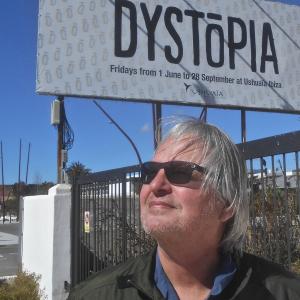
Bruce Sterling
Bruce Sterling is an author, journalist, editor, and critic. Best known for his ten science fiction novels, he also writes short stories, book reviews, design criticism, opinion columns, and introductions for books ranging from Ernst Juenger to Jules Verne. His nonfiction works include The hacker crackdown: law and disorder on the electronic frontier (1992),
Tomorrow now: envisioning the next fifty years (2003), Shaping things (2005), and The epic struggle of the internet of things (2014).
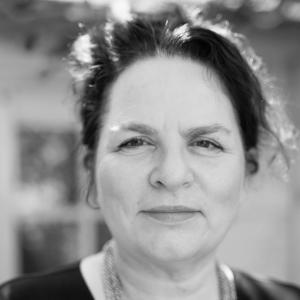
Marleen Stikker
Marleen Stikker is founder of Waag. She is also founder of 'De Digitale Stad' (The Digital City) in 1993, the first virtual community introducing free public access to the Internet in Amsterdam.
She leads Waag, a social enterprise that consists of a research institute for creative technologies and social innovation and Waag Products, that launched companies like Fairphone, the first fair smartphone in the world. She is also member of the European H2020 Commission High-level Expert Group for SRIA on innovating Cities/DGResearch and the Dutch AcTI academy for technology & innovation.
Marleen Stikker strongly adheres to the Maker's Bill of Rights motto: "If You Can't Open It, You Don't Own It". Marleen believes that society needs open technologies that meet societal challenges.
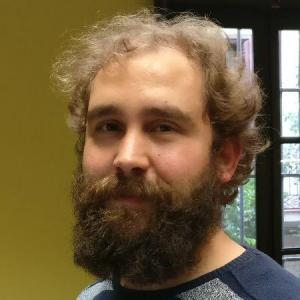
Antonio Tenorio
Antonio Tenorio-Fornés is a free software developer and researcher. He holds a 5 years CS/Eng degree and a Master in Research in Computer Science. He is currently the principal investigator of Decentralized Science, funded by LEDGER European Project. He is also developing his PhD at the Universidad Complutense de Madrid, for which he received funding by an institutional scholarship. His research aims to provide decentralized governance tools for Commons-Based Peer Production communities. He has also participated in the European Projects P2P P2P Models and P2Pvalue. He has been visiting researcher at the University of Surrey, the University of Westminster and Kozminski University. His experience developing decentralized web tools includes Teem, SwellRT and Decentralized.science, using technologies such as Blockchain and IPFS.

John Thornhill
John Thornhill is the Innovation Editor at the Financial Times writing a regular column on the impact of technology. He is also the founder of the FT125 forum, which holds monthly events for senior business executives, and host of Tech Tonic, the FT’s weekly podcast on technology. John was previously deputy editor and news editor of the FT in London.
He has also been Europe editor, Paris bureau chief, Asia editor, Moscow correspondent and Lex columnist.

Tommaso Valletti
Tommaso Valletti is Professor of Economics at Imperial College Business School and Professor of Economics at the University of Rome "Tor Vergata". Tommaso is currently the Head of the Department of Economics & Public Policy at Imperial College Business School.
He was the Chief Competition Economist of the European Commission (Directorate General for Competition) between September 2016 and August 2019. Tommaso's main research interests are in industrial economics, regulation, and telecommunications economics. He is a Fellow of CEPR and of ENCORE. He is a member of the panel of academic advisors to Ofcom, the UK communications regulator. He was a member of the panel of academic advisors of the UK Competition Commission.
Tommaso was Academic Director of the Centre for Regulation in Europe in Brussels, in 2012-2016. He was a board director of Consip, the Italian Public Procurement Agency, in 2002-2005. He has advised numerous bodies, including the European Commission, OECD, and the World Bank on topics such as network interconnection, mobile telephony markets and spectrum auctions.
.jpg%3Fitok=2O4p_6CZ&sc=99e3152a88be07b17d4dff2c5ec2e98a)
Aik van Eemeren
Aik van Eemeren is the lead PublicTech at the Chief Technology Office of the City of Amsterdam, Leading Amsterdam's PublicTech program where they aim to experiment and implement new tech, make tech public and choose for human tech. In example working on Amsterdam’s blockchain-pilots such as DECODE-prject.eu and kickstarting Amsterdam’s AI-strategy. He is also former director of the Dutch network for high level government officials.
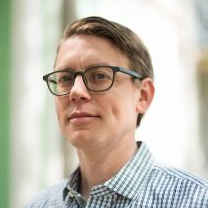
Sander van der Waal
Sander van der Waal is the lead of the Future Internet Lab at Waag, working to ensure that human values are core to how technology and data are designed and deployed in society, based on Waag’s principles of openness, fairness, and inclusivity. Sander has an educational background in computer science and philosophy, and has solid expertise and experience in open source software development, open data and knowledge, and data infrastructures.
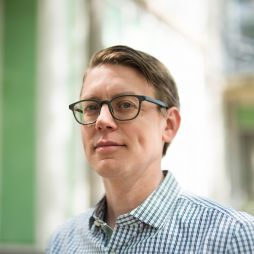
Sander Van der Waal
Sander van der Waal is the lead of the Future Internet Lab at Waag, working to ensure that human values are core to how technology and data are designed and deployed in society, based on Waag’s principles of openness, fairness, and inclusivity. Sander has an educational background in computer science and philosophy, and has solid expertise and experience in open source software development, open data and knowledge, and data infrastructures.
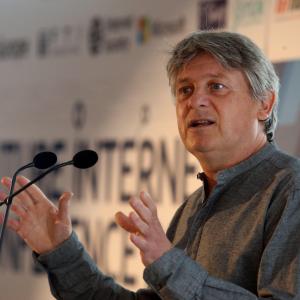
Rob van Kranenburg
Rob van Kranenburg is the Founder of Council_IoT and #iotday and the co-founder of bricolabs. Rob is featured in the Top 100 #IOT Influencers list and is the author of The Internet of Things. A critique of ambient technology and the all-seeing network of RFID, Network Notebooks 02 and Institute of Network Cultures.
Together with Christian Nold he published Situated Technologies Pamphlets 8: The Internet of People for a Post-Oil World. He works in Next Generation Internet. He is a DeTao Master IoT.

Joris van Hoboken
I am a Professor of Law at the Vrije Universiteit Brussels (VUB) and a Senior Researcher at the Institute for Information Law (IViR), University of Amsterdam. I work on the intersection of fundamental rights protection (data privacy, freedom of expression, non-discrimination) and the governance of platforms and internet-based services. I am a specialist in European data protection, algorithmic governance and the regulation of internet intermediaries.
At VUB, I am appointed to the Chair “Fundamental Rights and the Digital Transformation”, which is established at the Interdisciplinary Research Group on Law Science Technology & Society (LSTS), with the support of Microsoft. The aim of the Chair is to contribute to a better understanding of the transformation of society due to developments in digital technologies and their deployment in various sectors, and the European regulatory response to these developments. The Chair’s research aims are interdisciplinary and include the supervision of PhD students
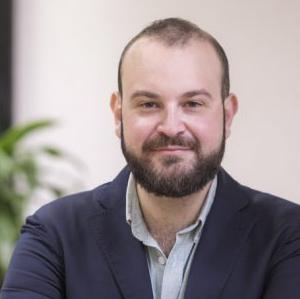
Marco Zappalorto
Marco Zappalorto is the Chief Executive of Nesta Italia. Marco joined Nesta in 2011 and, before founding Nesta Italia, he headed the Foundation's European Development and contributed to the creation of the Challenge Prize Center, driving much of the Centre's European and international work.
Before Nesta, Marco worked for OmniComplete (now Innocentive), directing the execution of competitions in various sectors for both the public and private sectors. He worked for the Chamber of Commerce and Industry in London, where he worked to advise small and medium-sized companies on European issues and opportunities.Marco is a specialist in European Political Economy at the London School of Economics and Political Science.

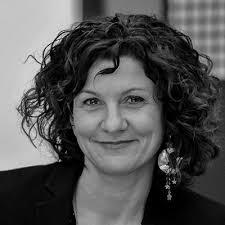

 DECODE was funded by the European Union's Horizon 2020 Programme, under grant agreement number 732546.
DECODE was funded by the European Union's Horizon 2020 Programme, under grant agreement number 732546.